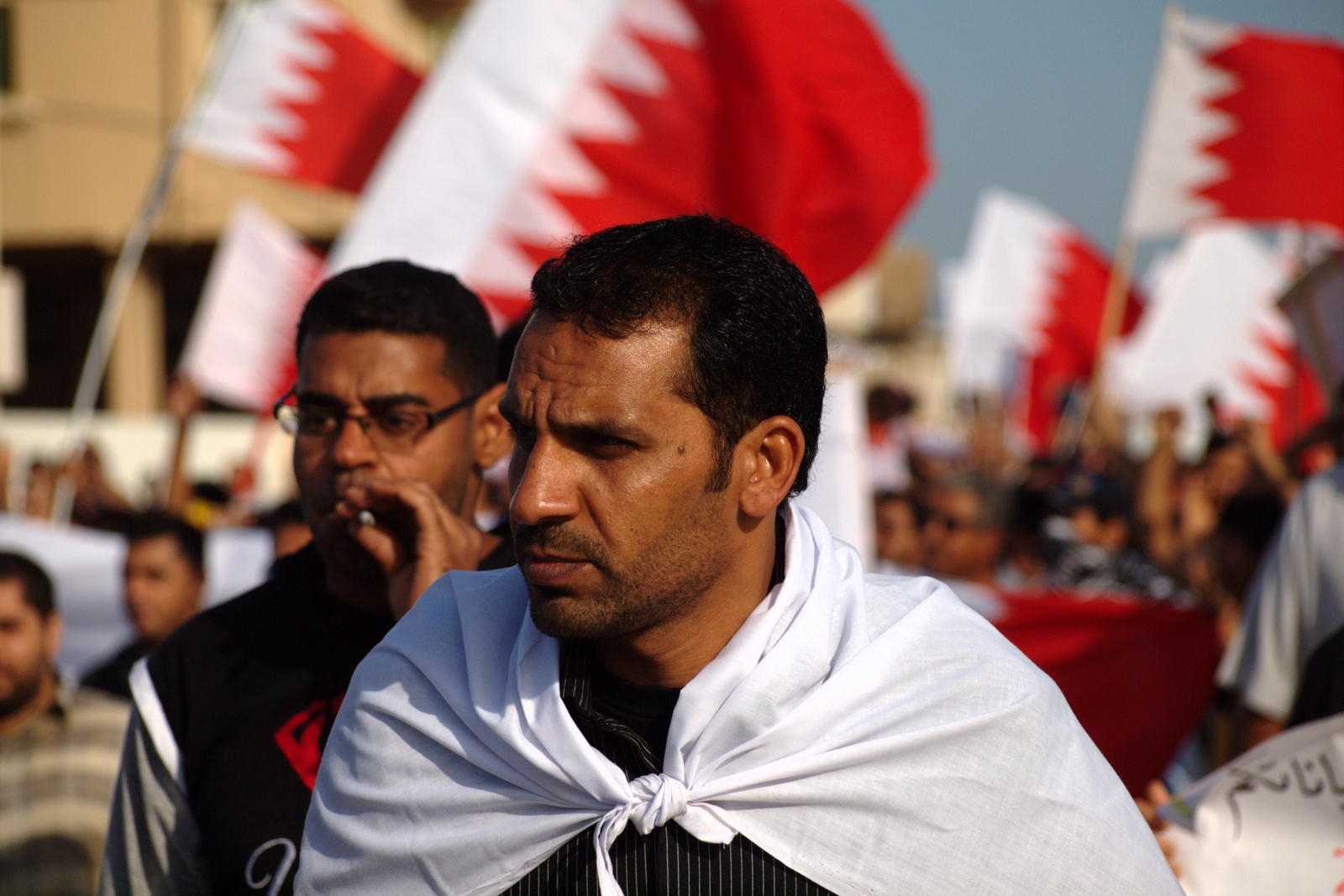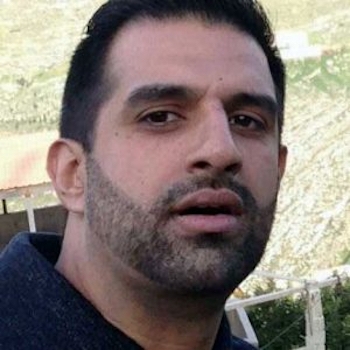
Bahrain: Inside the Assassin’s Smile
The tiny Gulf Kingdom of Bahrain is like a Greek tragedy, where the horror is reported but never shown. Decades of systematic police brutality and state-sponsored sectarianism directed by the ruling Al-Khalifa family, no doubt propped up by the deluded Saudi Monarchical obsessive’s, has only recently began trickling into the western media spotlight. The rose tinted ‘tableaux-vivant’ of the Arab Spring, now sucked of its romanticism, has not registered on the media consciousness for sometime.
But for the deadly security forces of Bahrain, the plot has yet to be resolved. The audience is staying interested. Every small event may hold the key to the conspiracy. Political and security snippets are being dissected, analyzed into their constituent parts, fed into the various equations and their results mulled over.
The latest news coming out is of security forces using armored vehicles to drive back enraged protestors who were advancing towards the famous Pearl Square in the capital Manama – a spectacle triggered by the brutal death of 78-year-old Ali Hasan al-Dehi, father of one of the country’s main opposition figures, Hussein al-Dehi.
Bahrain’s Centre for Human Rights says he was beaten to death by riot Police earlier this week. The government says he died as a result of a heart attack after suddenly falling into unconsciousness, at his home. But it was at his funeral procession on Friday that hundreds of Bahrainis decided to make their way to the Pearl, the site of the original mass protests against the ruling family which ended up in a bloody and violent crackdown.
In recent weeks, the ugly face of the regime has surfaced more vividly. In October we saw the militarily courts draconian sentencing of doctors and medical personnel over their ‘alleged’ role in fermenting the on-going popular uprising. The reports of respected consultants and doctors at Salmaniya hospital being tortured to confess their apparent complicity in storing weapons, the splashing blood and the indirect killing of protestors by neglect is just another act in the Theatre of the Absurd.
The aptly named Sheikh Abdul Aziz Bin Mubarak Al Khalifa, from Bahrain’s dubious Information Ministry, arrogantly stared into the camera following the verdicts and defiantly rejected that his government has been malicious in the recent sentencing. ‘No one is above the Law’ he said resoundingly. One victim’s relative, who wished to remain anonymous, dismissed his words as outrageous.
In fact there is more than meets the eye when it comes to the oil-rich kingdom. When the populace began to rise en masse in March this year, the islands absolute rulers who are members of the minority Sunni sect, were quick to condemn the democratic protests as an Iranian-inspired Shia coup. And they showed no mercy.
The majority shi’ite population was hit where it hurt most. Many were abruptly dismissed from jobs, their shrines were attacked, and their mosques were desecrated and even bulldozed on occasions – in addition to sporadic live firing into crowds that dared to dissent against the Kingdoms ruling family and their Sunni dominated security forces.
As a result, thousands have been slaughtered in a manner that is reminiscent of history repeating itself. The same thing happened when the Shiite rose against Saddam in Iraq. The ruling Sunni family, exploiting sectarian tensions, fuelled by the US proxy war against Iran, continues to crush any opposition against the regime. As if to try and soften the blow over the latest killing and crackdown, the US State Department spokesman, Victoria Nuland, asked all sides to exercise restraint, whilst urging the Bahraini government to conduct a transparent investigation into what happened. Otherwise, she did absolutely nothing.
To stay in power the ruling family has no choice but to disseminate fears of a Shia takeover to the minority Sunni, and as a result sectarianism is pervading every aspect of Bahraini life. The King seems periodically to be opening up a dialogue with the revolting majority, but in the eyes of those he has repressed, conceding to his call for dialogue and help would be akin to accepting a set of false teeth from somebody who has just kicked their face in. Unconfirmed reports are slowly emerging, mainly from social media activists, that arsenic was used in tear gas against protestors near the village of Al-Sehla some weeks ago. The toxicity of the ruling Al-Khalifa family, which has appeared to diffuse into their politicized judiciary, is now suffocating the population.
The ruling family’s Casus belli against its own people, it says, is not about the love of power. It’s about bringing to naught attempts by Iran to place a ring of blockade around them – to threaten their very existence. Meanwhile the dissent is rising, the world is condemning, but the rulers (with brotherly support from their Gulf allies) are acting as if they’re immune. Iran is waiting in the wings; the brave youth of the Arab spring are as determined as ever. Perhaps there’s a truth in the saying that people who live in glass houses, should not throw stones.

